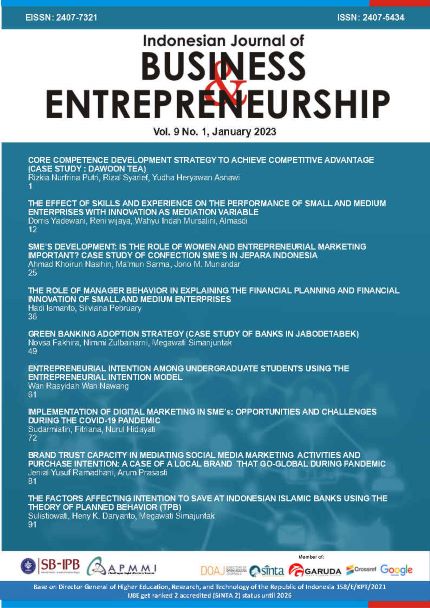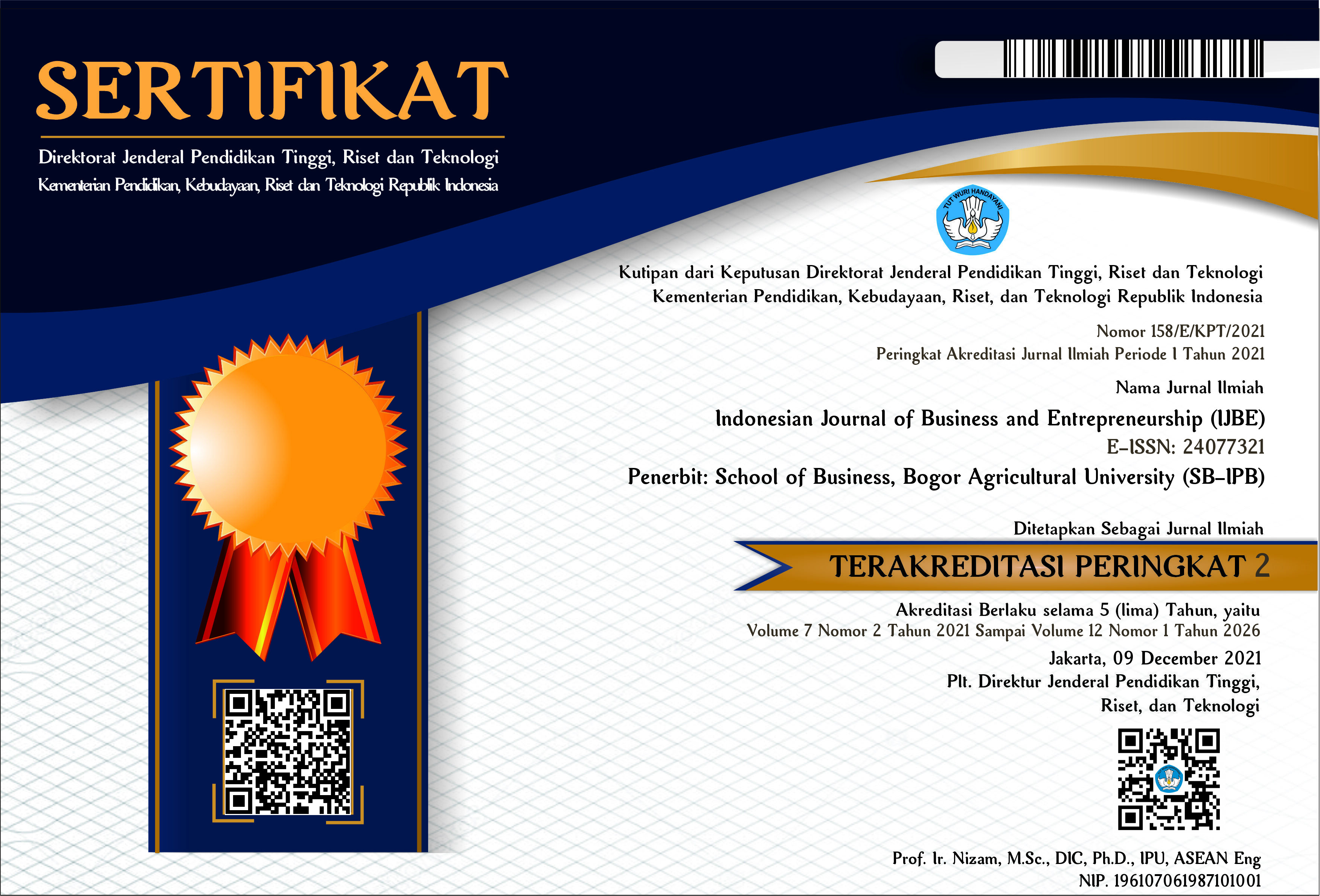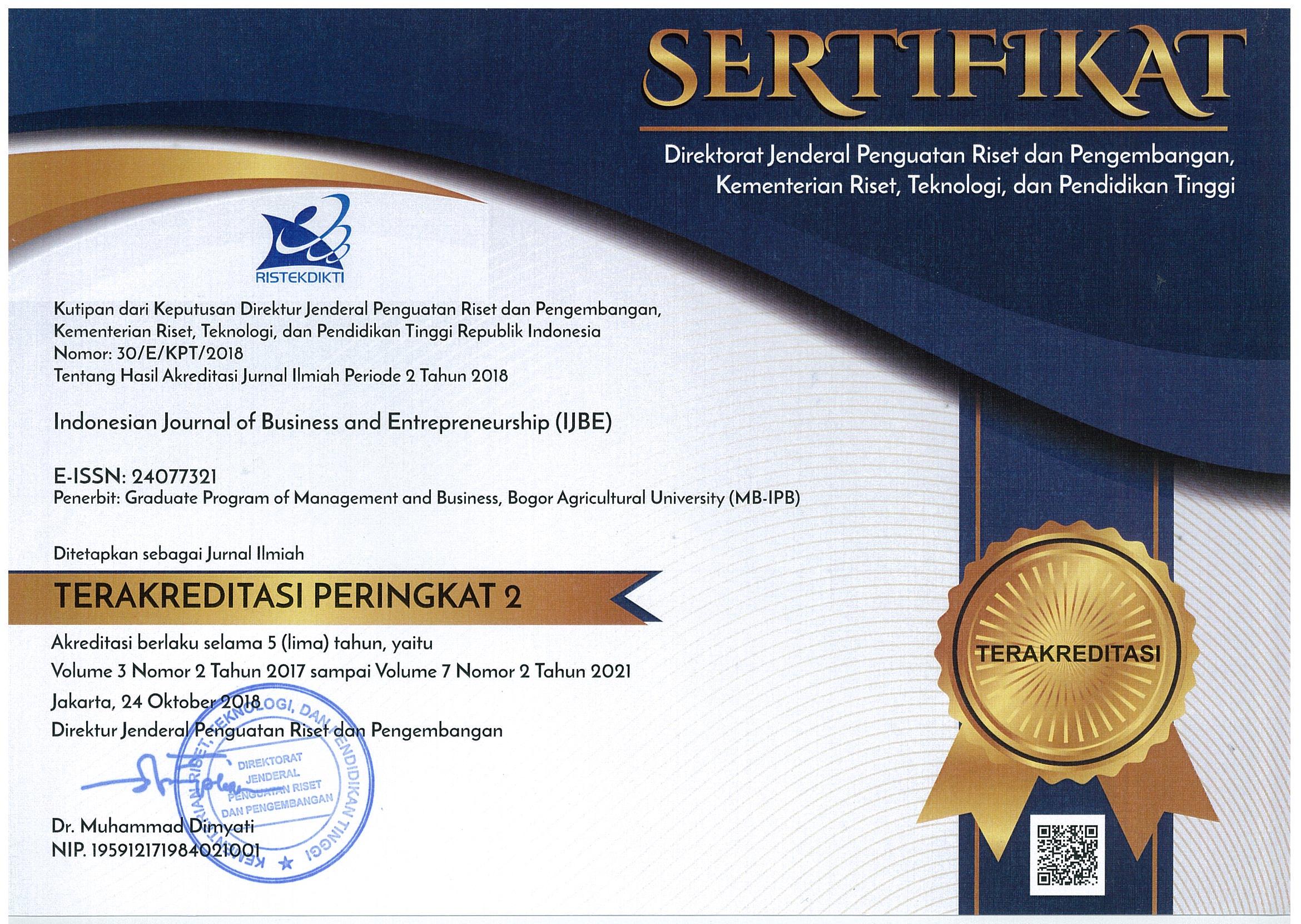The Factors Affecting Intention To Save at Indonesian Islamic Banks Using The Theory of Planned Behavior (TPB)
Abstract
During the increasingly fierce competition in the Islamic finance industry, strategic steps are needed to increase public intention to save. This study aims to analyze the influence of shariah financial literacy, religiosity, attitudes, subjective norms, and behavior control on the intention to save at Indonesian Islamic Banks with the Theory of Planned Behavior (TPB) approach and formulate managerial implications for Indonesian Islamic Banks. This research was conducted on 200 respondents selected by voluntary sampling with Muslim criteria who had never had savings at Bank Syariah Indonesia and lived in the Greater Jakarta area. Data were collected online using a questionnaire and Structural Equation Modelling. The results showed that financial literacy has no significant effect on attitudes and behavior control; on the contrary, religiosity has a significant positive effect on attitudes and behavior control. Furthermore, subjective norms positively affect the intention to save but do not affect attitudes. On the other hand, attitude and behavior control significantly positively affect the intention to save. Based on the research results, Indonesian Islamic Banks can develop business by emphasizing the religiosity side to inspire people to prefer Islamic banks over conventional banks. Furthermore, Bank Syariah Indonesia should use social-environmental reference factors like friends and family.
Keywords: Indonesian Islamic banks, intention to save, financial literacy, religiosity, theory of planned behavior








